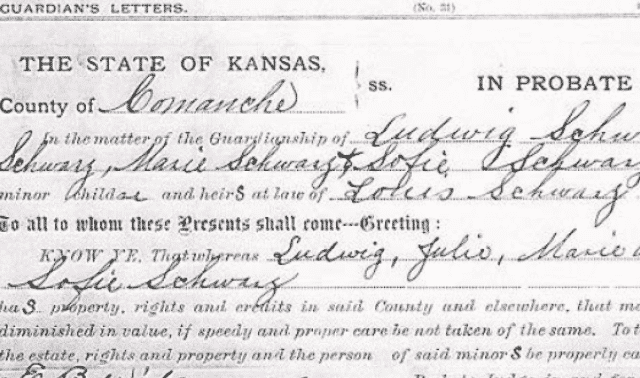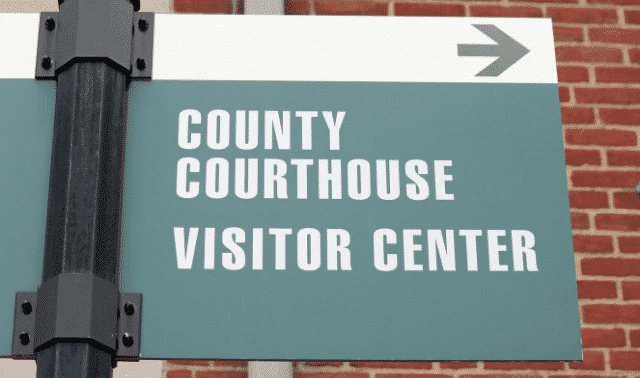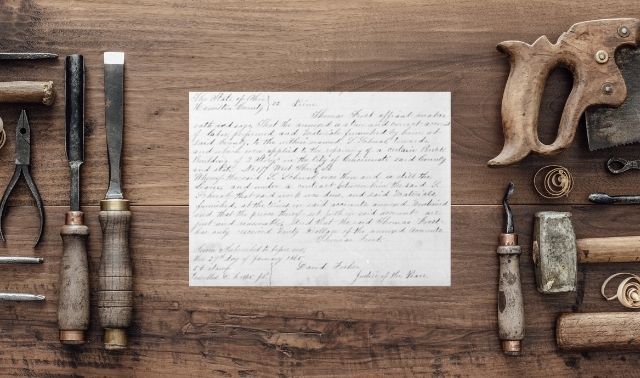Sign up for the Family Tree Newsletter! Plus, you’ll receive our 10 Essential Genealogy Research Forms PDF as a special thank you.
Get Your Free Genealogy Forms
"*" indicates required fields

So you send a request for your ancestor’s divorce or deed or criminal trial or other old record to the courthouse that should have it—or you go to that courthouse—and the record isn’t there.
This happened to me when I requested case records of my great-grandfather’s 1913 trial for bootlegging in Bowie County, Texas, a dry county at the time. I didn’t have a volume and page number, but I knew details including the county and the date of conviction. I laid it all out as succinctly as possible in my request, added that I’d pay any fees, and sent it off to the clerk (whose name and address I found on the county court’s website).
A few weeks later, my letter came back with a note that said “searched, record not found.” When this happens, it’s possible the information in the request was incorrect or incomplete, that the record was misfiled or filed elsewhere, or that it no longer exists.
Here are some of the options I’ve tried:
Double-check your information
Were the names in your request spelled correctly? Did you give a woman’s maiden name when the record should be under her married name? Did you transpose numbers in the date? If so, correct your request and resubmit it.
Find the volume and page number where the record is located
Some local genealogical societies have published indexes to court records. Otherwise, check the FamilySearch online catalog for microfilmed indexes: Run a Place search on the county or town and click the court records heading, then browse for index reels covering the right time period. If digitized you can view the microfilm at FamilySearch.org (un-digitized microfilm can only be viewed at the FamilySearch Library in Salt Lake City). Court records indexes are usually handwritten and arranged by the first letter of the last name. Within each section, names may be partially or not at all alphabetized, so check the entire section.
Check the records at FamilySearch
Once you have a volume and page number, you could add it to your request, or you could see whether FamilySearch has digitized the records you need. At the FamilySearch Library in Salt Lake City, I searched the microfilmed index and court records for Bowie County. I could see why the clerk didn’t find the records: The volume and page number the index gave for my great-grandfather’s case corresponded with records from years before he was in the county. I also checked microfilmed records for the time his trial took place. Nothing. I noted from the index that his trial was one of a batch of consecutively numbered bootlegging cases, all of which seemed to be missing.
Look for courthouse disasters
Local research guides and genealogical societies also can tell you if a fire or other disaster destroyed records. If so, find out exactly which records were involved—some may have survived. Also look for reconstructed records and other substitute sources.
Check local research guides
It’s possible the records were misplaced or filed elsewhere. After all, we’re talking about an entire county’s worth of paperwork in a pre-computer era. Some time after my microfilm search, I found newspaper articles mentioning my ancestor’s trial, and how a special court district was set up to handle the glut of bootlegging cases. I wonder if those records were kept elsewhere? Local research guides and societies might help in figuring out the answer. I could resubmit a more-detailed request, in the hopes a different clerk would know where to look. One thing to remember, though, is that a clerk won’t be as highly invested in my genealogy search as I am, and regular duties would likely take precedence over my request. I would love to go to the courthouse to search the records myself (or I could hire someone if I had the budget for it). Not all courthouses let researchers access the original records, so if it’s an option you’re considering, call first.
Last updated: July 2021




